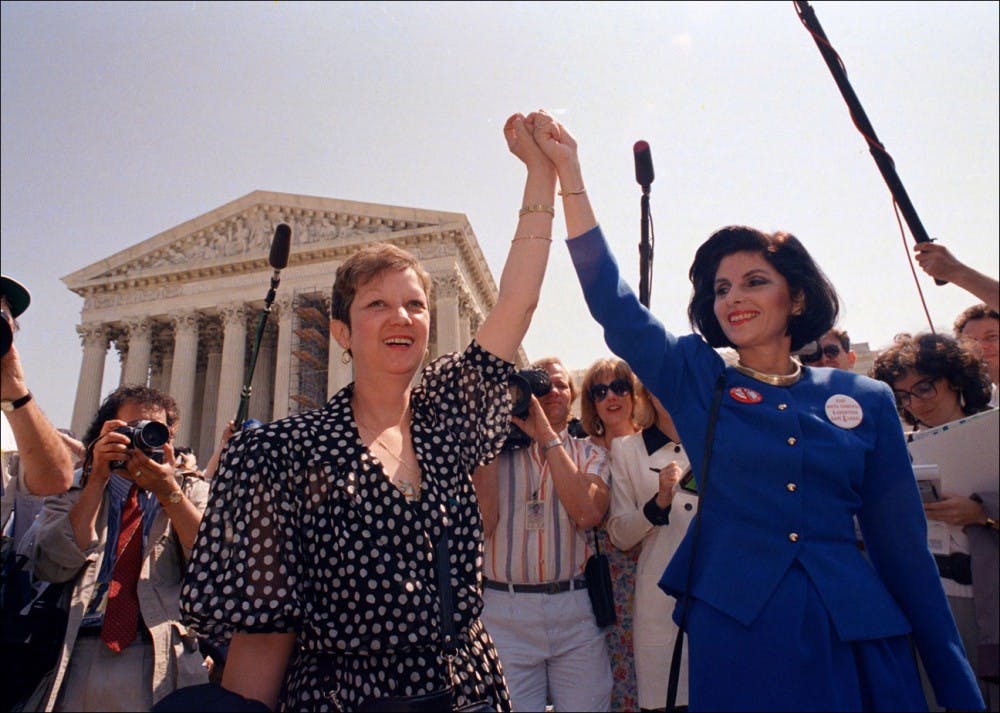This month marks the 40th anniversary of Roe v. Wade, the court decision that forever changed America's approach to abortion. The following article is the second in a two-part series that will offer an in depth look into the physical, emotional and spiritual complications of abortion.
By Claire Hadley
40 years ago, Roe v. Wade's stated intention was women's health.
In a day when abortions were illegal and many women were dying from botched abortions by back-alley butchers, it was thought that legalizing the procedures and providing clean abortion facilities would decrease subsequent fatalities.
Numbers of injuries and deaths from poorly-done illegal abortions were so high that many Americans thought the decision to legalize might be a good one, but few people realized the atrocities even legal abortion wreaks on women and the people around them.
Complications inherent to abortion are physical, emotional and spiritual, according to National Right to Life (NRLC). Initial statistics of the fetus death rates alone are shocking. More than 50 million abortions have completed since Roe v. Wade was passed.

That means 73 times more American citizens have died from abortion than have died in battle in our last 12 wars, according to NRLC.
Ninety-seven percent of women have reported pain that they label between intense and very severe, despite the use of local anesthesia, according to NRLC. Long-term physical complications include permanent infertility, increased risk of future miscarriage and a severely increased chance of breast cancer, as well as death.
A study by the National Cancer Institute, which canvassed more than 1,800 women, found that having an abortion before the age of 45 increased the likelihood of breast cancer by 50 percent. Pregnant women under 18 who undergo an abortion have an increased risk of 800 percent.
These numbers reflect not only physical death and pain, but also mental and emotional disrepair, according to Flip Benham, Director of Operation Save America.
"So many moms have taken their own lives and killed themselves, they cannot live with the voices," Benham said. "They would do anything to get that day back but they can't get it back, and there's not enough prozac, not enough hours on a psychiatrist's couch to fix that."
Taylor's University's First Lady Marylou Habecker supports Benham's statement.
"It is like throwing a valuable 'Ming vase' to the floor, and shattering it, and then glueing it back together. It is whole, but still bears scars," Habecker said.
Psychological effects of abortion have been grouped into a pattern called Post-Abortion Syndrome. The syndrome begins with an amount of denial, which may last nearly 10 years before other emotional complication surface, opening the door for substance abuse, relationship and sexual dysfunction, lack of self-esteem and suicide.
Fifty-six percent of women felt guilty after having their abortion and twenty-six percent regretted it, reported a Los Angeles Times survey.
On top of the physical and mental complications, abortion also causes unaddressed spiritual complications.
"Jesus says [in John 16] that a woman is in anguish, sorrow, until a child is born, but once the child is born the sorrow is gone," Benham said. "But. . .when a lady stop that baby from growing in her womb and the child is never allowed to be born, what continues is the anguish."
Many women go to get their abortion with the mindsets like they don't care what anyone says, its just a blob of tissue, or that they won't have a need to feel sorry. They justify their decision with the thought that they don't need to comply with the spiritual law of gravity, Benham said.
"It is murder if we kill a life after breathing earthly air. It is murder if we kill a life before they breathe earthly air," Habecker commented.
It is just as absolute as the physical law of gravity which we all must comply with, whether we believe it or not, Benham said.
"You can believe that you're a bird and that you can fly you can jump up in top of a roof and start flapping your little arms and jump off but once you jump, that choice has consequences, gravity does apply and you come crashing to the ground," Benham added.
But even after making the choice to have an abortion and live with the physical complications, the spiritual wounds have a chance to be completely resolved.
"God forgives, and forgives completely … for the scars are deep and the 'forgiving of self' sometimes never happens," Habecker said.
Yet some of the Christian community are still holding out for the female side of our race.
"I believe in choice because I believe that women are capable of making ethical and moral choices on their own, particularly when it relates to their own bodies. Its not that I'm saying that they should choose abortion," Jessica Rousselow-Winquist, Director of the Communication Department said.




